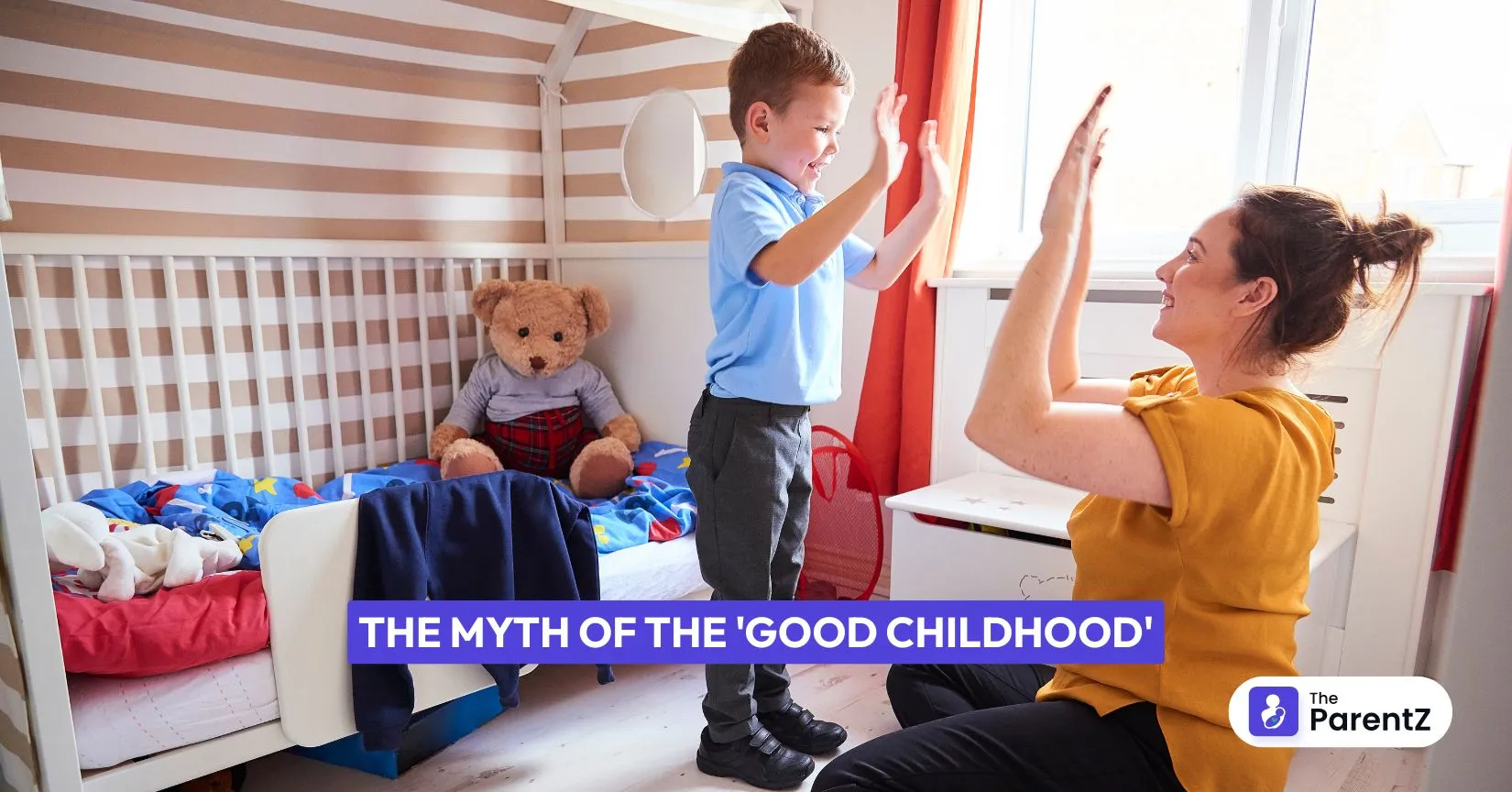It happens at 3 AM when you're rocking your crying newborn. It strikes during your toddler's epic meltdown in the grocery store. It whispers in your ear as you scroll through perfectly filtered family photos online.
The thought: "Am I giving my child a good enough childhood?"
And with that question comes the crushing weight of expectation. The belief that somewhere out there exists this magical formula for the perfect childhood, one without pain, disappointment, or struggle. One where your child is always happy, always thriving, always okay.
The reality? This "good childhood" we're all chasing is perhaps the most persistent myth in modern parenting. And it's time we talked about it.
The Perfect Childhood Trap
Here's the truth many parents need to hear: The "good childhood" as we've come to imagine it—one free from struggles, disappointments, and tears—is a myth.
This pursuit comes from a place of deep love. Perhaps you experienced hardships growing up and promised yourself, "My child will never feel what I felt." Or maybe society has convinced you that good parenting means creating constant happiness.
But when we chase this myth, we drift away from reality. Life isn't meant to be a smooth sail. If it were, how would we ever develop character? How would we learn resilience? How would we appreciate joy if we never experienced sorrow?
What Children Actually Need
Children don't need perfect childhoods. They need real ones.
They need to fall down sometimes so they can learn to get back up. They need to experience disappointment so they can develop resilience. They need to face challenges so they can discover their own strength.
Think about the most important lessons from your own life. Did they come from moments of ease and comfort? Or did they emerge from struggles, from overcoming obstacles, from navigating through uncertainty?
The most meaningful growth rarely happens when everything is perfect. It happens in the messy middle of life.
The Hidden Cost of Perfection
When parents obsess over creating the "good childhood," several things happen:
- Children don't develop coping skills. When we rush to solve every problem and soothe every upset, children miss opportunities to develop their own emotional regulation.
- Parents burn out. It's exhausting trying to control every aspect of a child's experience. This impossible standard leads to parental guilt, anxiety, and exhaustion.
- Children learn that negative emotions are unacceptable. When we constantly try to "fix" sadness or anger, children learn these emotions are wrong or dangerous rather than normal parts of being human.
- Reality can never match the ideal. No matter how hard you try, you cannot create a perfect childhood. This gap between expectation and reality breeds disappointment and shame.
Redefining the "Good Childhood"
A truly good childhood isn't about the absence of pain or struggle. It's about presence.
It's about having someone who stands by you through both sunshine and storms. Someone who doesn't abandon you when things get messy. Someone who helps you make sense of the world, including its harder parts.
A good childhood includes:
- Learning that all emotions are acceptable, even the uncomfortable ones
- Developing resilience through age-appropriate challenges
- Understanding that mistakes are opportunities for growth
- Knowing that your worth isn't tied to your achievements
- Feeling deeply seen, known, and loved—not for being perfect, but for being exactly who you are
Breaking Free from Your Own Past
Many parents chase the perfect childhood for their children because of wounds from their own upbringing. Perhaps you felt unseen, unheard, or unloved. Now, you're determined to give your child everything you didn't have.
This impulse comes from love, but healing doesn't happen by going to the opposite extreme. If your parents were too strict, becoming completely permissive isn't the answer. If they were emotionally distant, hovering over your child's every feeling isn't the solution.
Healing happens when you acknowledge your own childhood wounds, work through them, and make conscious choices about the parent you want to be, not just reacting to what you experienced.
Finding the Middle Path
Good parenting isn't about creating perfect days. It's about showing up consistently, especially on the imperfect ones.
It's sitting with your child in their disappointment rather than rushing to fix it.
It's teaching them that while we can't control all the things that happens to us, we can choose how we respond.
It's modeling resilience by letting them see you struggle sometimes and overcome.
It's being honest about your mistakes and showing them that humans are works in progress.
Conclusion
When you release the myth of the perfect childhood, something wonderful happens. You get to be a real parent to a real child. Both of you get to be human together.
You'll still provide guidance, boundaries, and love. You'll still work to create beautiful memories and joyful moments. But you'll do it without the crushing pressure of perfection.
And in that space, where real meets ideal, authentic connection happens. Your child learns that they are loved, not despite their struggles, but through them. They learn that life's challenges don't break us—they shape us.
That understanding is the true gift of a good childhood. And it's available to every parent and child willing to embrace life in all its messy, beautiful complexity.





Be the first one to comment on this story.